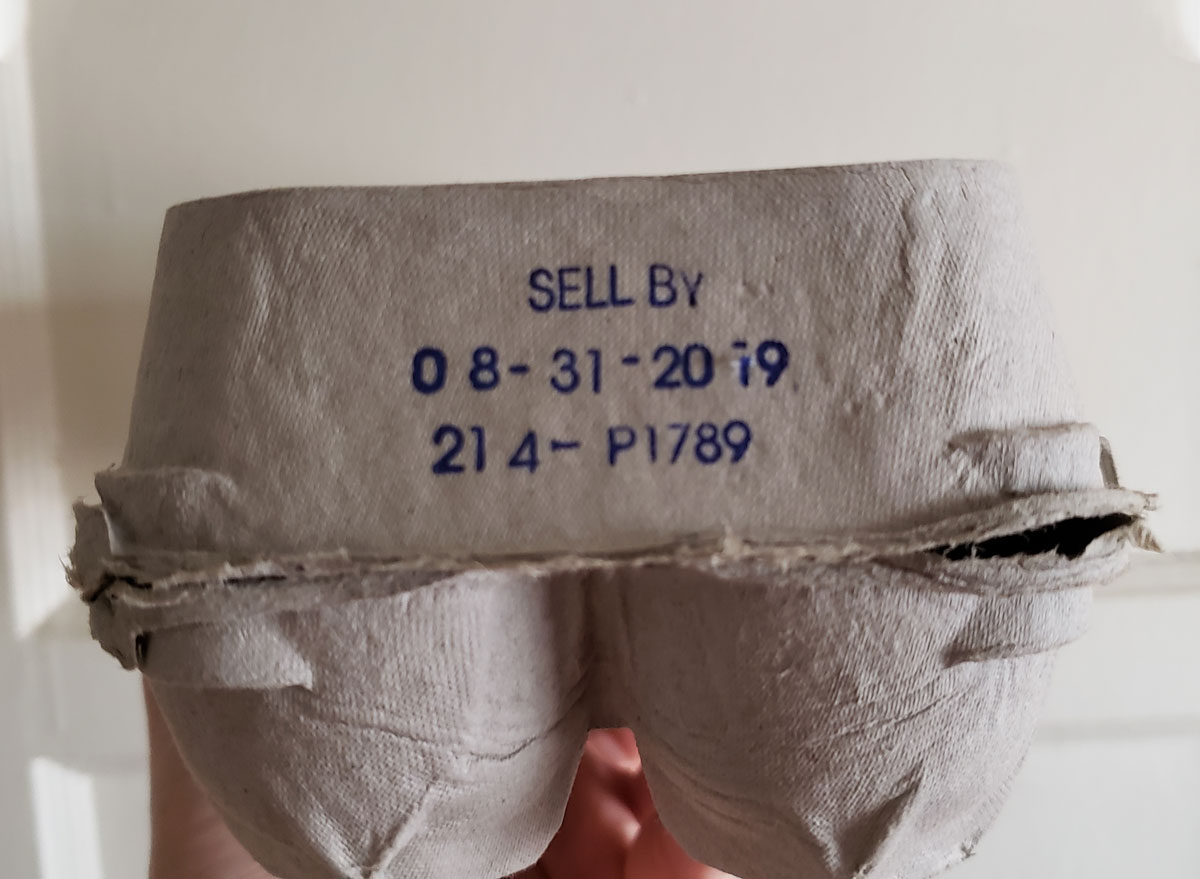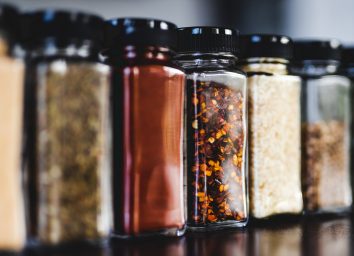One Major Side Effect of Eating Expired Foods, Say Experts

Did you know the majority of foods don’t have an expiration date? What you’ve probably been reading is the “Use by,” “Sell by,” and “Best By” dates. If the food you want to eat passed those dates, you might wonder what can happen to you if do choose to eat the food anyway. We’ll get into the details below, but in short: eating food past its expiration is not only safe, but it’s also good for the planet in that it helps to reduce food waste.
Read on to learn about what “expiration date” terms really mean, what foods actually expire, and what happens when you eat “expired” foods.
Food label confusion
When it comes to dates on food labels, it is certainly confusing. According to the FDA, this confusion contributes to about 20% of food waste at home.
The only foods that have an expiration date are baby formula, some baby food, and milk from some states. If a food is labeled “expired on,” then the date listed is the last day the food is safe to eat. If the food is past its expiration date it should be tossed out. (See: Is It Safe To Eat Food After Its Expiration Date?) For baby formula and baby food, there is no playing around with it or tasting the food after it expired—so toss it out if it passes the expiration date.
The most common date on packaging that you will see is the “use by” and “sell by” dates.
The “use by” (also seen as “best if used by”) date refers to the last day to use the product for the highest quality, including texture and taste. The date is set by the food manufacturer and does not refer to the safety of the product.
The “sell by” date tells the store how long the food can be displayed on its shelves. Again, this is set by the food manufacturer as a guideline for the store. The food can still be safe and tasty even days after the “sell by” date has passed.
Consequences of eating food past the dates
Eating food past the “use by” or “sell by” date does have a major consequence—and it’s a positive one—you are minimizing food waste.
In the U.S., food waste is estimated between 30-40% of the food supply according to the FDA. According to the USDA’s Economic Research Service, about 31% of food lost at the retail and consumer levels equates to about 133 billion pounds and $161 billion of food in 2010. This food could have helped feed families in need but is sent to landfills.
If you do not want to eat the food past the “use by” or “sell by” dates then talk to your local food pantry – contrary to what you may assume, many will take foods past their “use by” and “sell by” dates.
It’s worth noting that if you are eating food past the “use by” and “sell by” dates, the quality may not be as fresh as beforehand. Those dates tell you the peak quality of the ingredients. So eating the food months after the “use by” and “sell by” date, some of the nutrients may have also degraded so you may be getting a bit less of the nutrient quality.
Bottom Line: Stop wasting good food and know that the dates you see on packages are a guideline to its quality. These dates are put there by food manufacturers but are not a hard stop on when you need to eat the food by. Of course, if you smell or see something funky in your food then do toss it out. As the adage goes, “when in doubt, toss it out.” For more ways to prevent food waste, check out these 7 Secret Tricks for Extending Food Expiration Dates.
For more healthy eating news, make sure to sign up for our newsletter!








